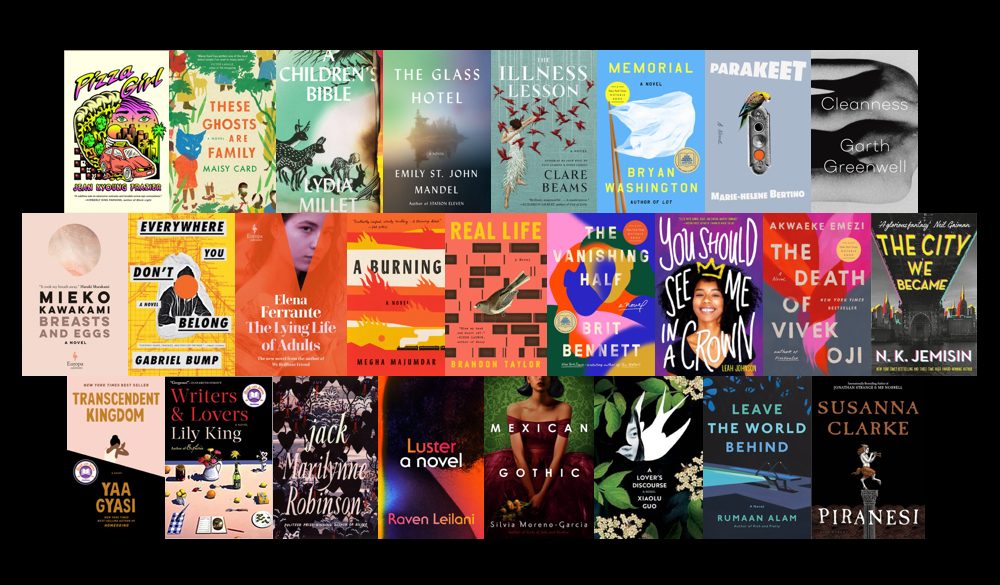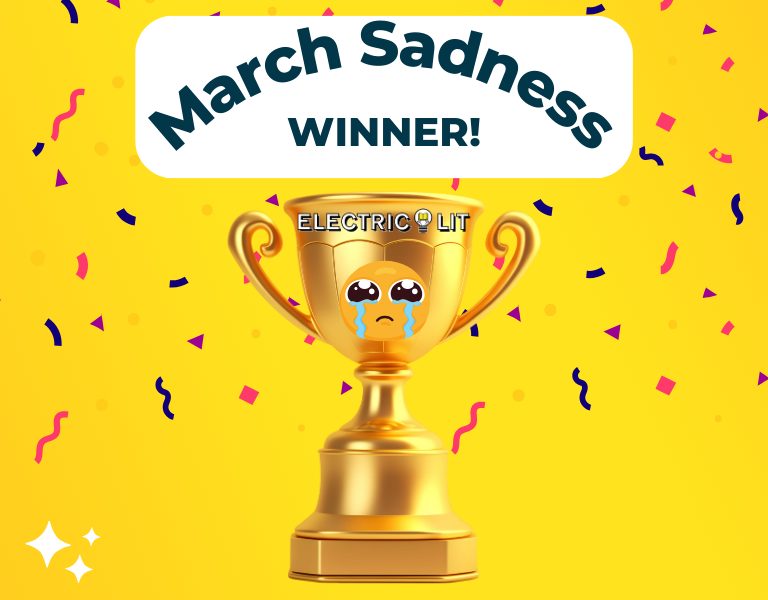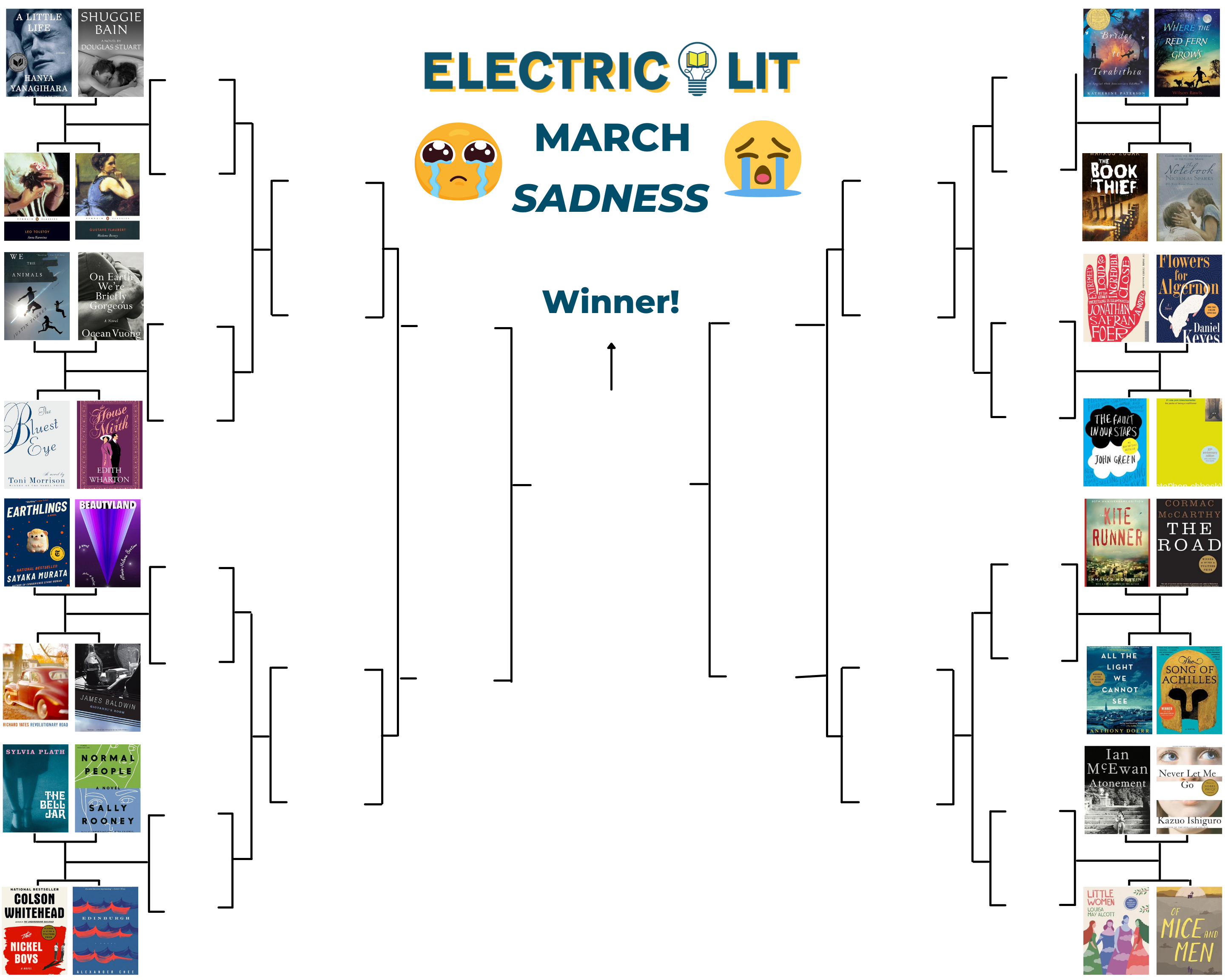Reading Lists
Electric Lit’s 20 Most Popular Posts of 2020

In an unpredictable year, we could count on one thing: Electric Literature readers will always be motivated by stories that put the world into literary context, and put literature into the context of the world. You loved book lists about defunding the police or destroying capitalism, recommendations for work by BIPOC writers, and essays about moving book events to Zoom, reading the “Earthsea” series as part of the work of racial justice, and knocking Joan Didion off her pedestal. But true to the chaotic nature of 2020, there were a few surprises too. Below are our most-read posts of the year, in ascending order of popularity.

6 Debut Fantasy Novels Starring Black Women by Patrice Caldwell
Caldwell, the editor of the fantasy anthology A Phoenix First Must Burn, highlights books that take “Black girl magic” literally.
When [my anthology] sold, we were just beginning to see Black-authored YA fantasy and science fiction novels get major traction… It said that these stories didn’t just matter to us Black girls who grew up reading and imagining ourselves in fantastical and futuristic worlds, but that there is a wider market than maybe even we ourselves realized.

Margery Kempe Had 14 Children and She Still Invented the Memoir by Sara Fredman
So what’s your excuse? No, just kidding, we promise that’s NOT the take-home message of this essay about the medieval memoirist who might as well be the patron saint of moms who write.
Margery’s Book offers perhaps the earliest example of how childbirth and motherhood can become generative in a literary context—even, or perhaps especially, when the writing is not about childbirth and motherhood. We need all the examples we can get.

Why Is Everyone Suddenly Obsessed With Sourdough? by Jess Zimmerman
Sourdough burst on the scene as a quarantine project in April, but Robin Sloan, author of Sourdough, had been looking into the magic of microbe-based baking for a while. We asked him to help us understand.
One of the things these microbial communities are amazing at is coordination, and I think there’s something about that worth dwelling on in this moment. Of course, I don’t want to be a lactobacillus, even if it means I can work in perfect harmony with a community of billions; but… I guess I’d be willing to LEARN some things from a lactobacillus?
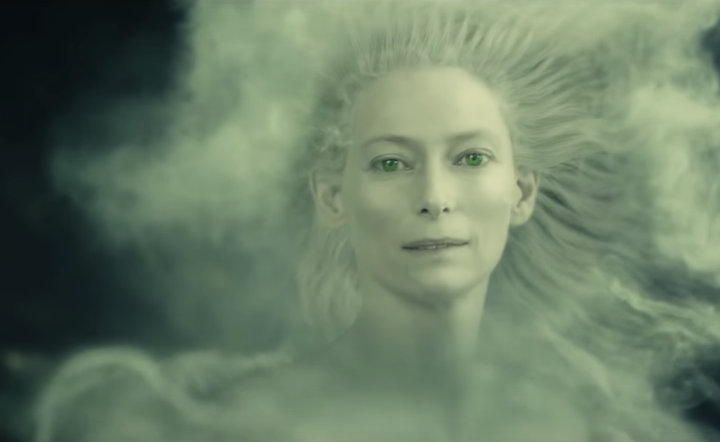
A Definitive Ranking of all the Chronicles of Narnia Books by Gnesis Villar
Our wickedly funny former intern ranks the crypto-religious children’s classics, from the barely-remembered The Horse and His Boy to the unforgettable introduction of “Jesus’s fursona, Aslan.”
While the Chronicles of Narnia series might be a little polarizing—for some it’s a beloved childhood classic, for others it’s a cheesy Jesus-fest—I think we can all come to agreement on who is the worst Pevensie: Edmund. Another thing we can agree on is viciously pitting nostalgic pieces of media against each other to see who comes out on top.
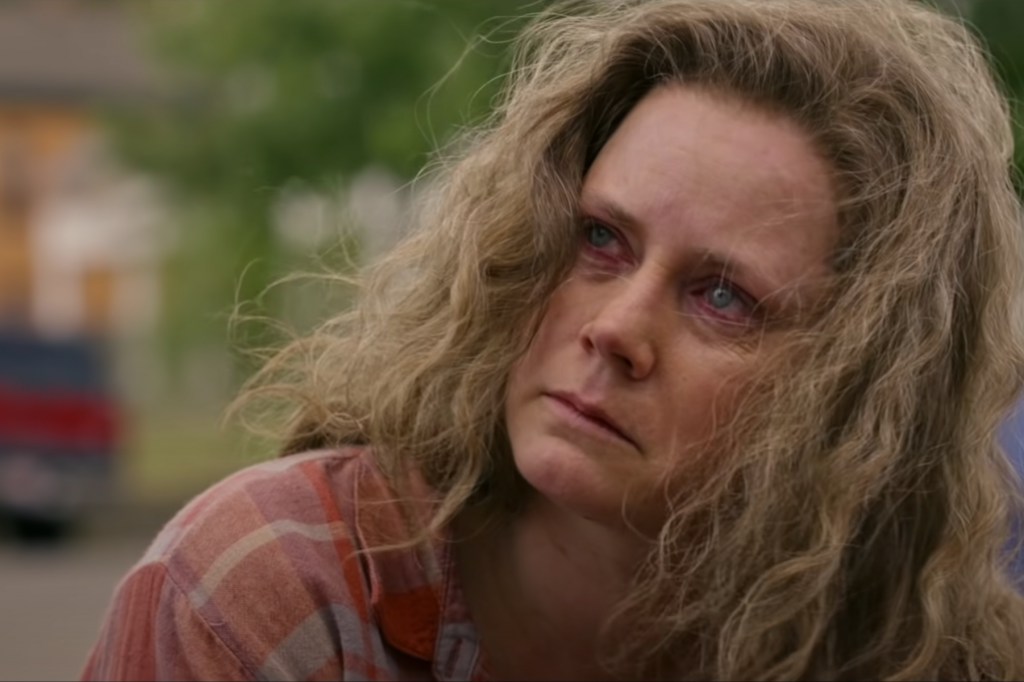
“Hillbilly Elegy” Is the Last Thing America Needs in 2020 by Kayla Rae Whitaker
J.D. Vance’s memoir of growing up in, and getting out of, Appalachia is frequently cited to explain “Trump country.” But, says Appalachia-born Whitaker, the smug superiority Vance demonstrates for the “hillbillies” of his youth actually contributes to the sense of alienation that Trump exploited.
At a time at which the threat of fascism has never felt closer, the last thing the country needs is a narrative that alienates an entire region, deepening an already-substantial fissure between Appalachia and the rest of the country. When appealing for votes in the southeast, Trump presented himself as an outsider, and many Appalachian voters—not without good reason—responded to that assertion, so much so that Mitch McConnell found himself leaning on his association with Trump while successfully campaigning for his reelection to Kentucky’s senate seat this year. It raises the question: what would the electoral map look like if we took the “hillbilly” out of the equation and, instead, considered Appalachia as a constituency worthy of decency and respect?

Gay Sex Makes for Great Literature by Aaron Hamburger
Was this interview with Garth Greenwell only so popular because we put “gay sex” in the headline? Mind your business. Anyway, even if it did get a bump from SEO, this is a barnburner of an interview, in which Greenwell resoundingly rejects the idea of a “general reader” who might object to his centering queer erotics.
Concepts like “general reader” make me uncomfortable. Who is this “general reader“? What is this “willingness” we’re supposed to care about? Do we assume that the general reader is straight? White? Male? Midwestern? I think it’s pretty impossible to make use of an idea like that without projecting onto it our hopes or our fears—I think it’s impossible to make any use of it that could do us any good. I don’t want any specter of the general reader, or the dominant culture, to shape what I write—whether I’m attempting to appease that specter or to spurn it.

10 Books About Black Appalachia by Crystal Wilkinson
You know what’s a better introduction to Appalachia than Hillbilly Elegy? Any of these works from the vibrant and long-lived “Affrilachian” tradition, all of which challenge misconceptions about the region.
Black Appalachians have always been invisible to mainstream culture that wrongly conflates “white” with “Appalachia.” Stereotypes are even more prevalent in today’s political climate but the presence of African people in the Appalachian mountains was documented as early as the 1500s. Many Black people are still settled in hollers, former coal camps and thriving urban Appalachian towns and cities throughout the region. Our ancestors were among the earliest settlers.

10 Nonfiction Books on Why We Need to Defund the Police by Jae-Yeon Yoo
Even some otherwise intelligent people claim that “defund the police” is a confusing slogan for combating the misappropriation of our ostensibly public resources to police departments that use them primarily for violence and harm. But they might not think so if they read up a little. Jae-Yeon Yoo put together a list of books for those who actually want to understand.
We have seen that the U.S. policing system is deeply rooted in anti-Black, racist structures of power that uphold white supremacy. The past week’s events have shown us, once again, that our national crisis is beyond a matter of police reform; it is long past time that we hold the police accountable for their brutal actions, and start thinking of more viable options for our future.
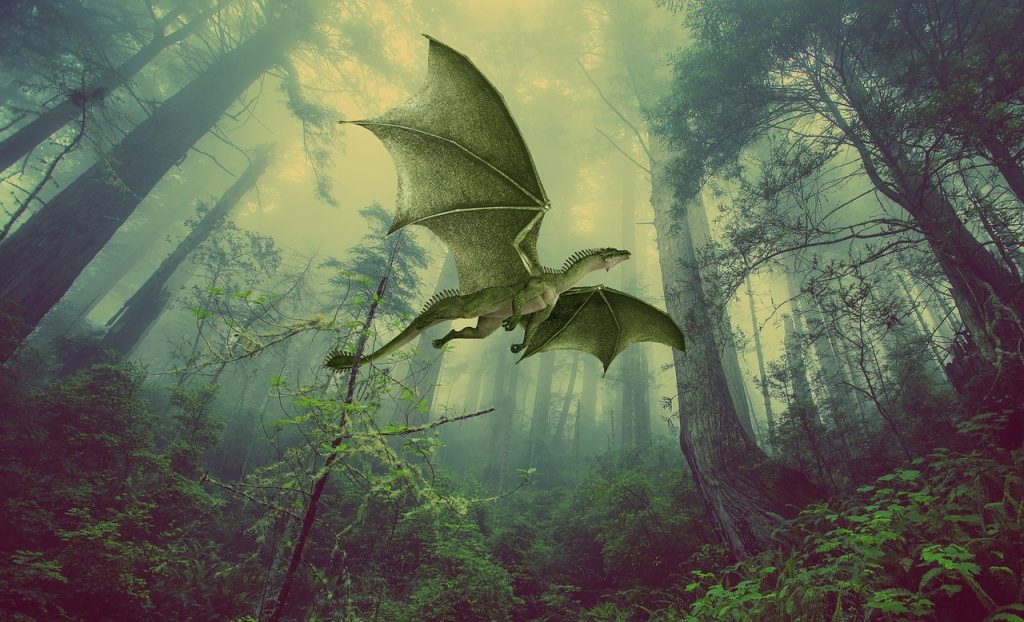
There Has Never Been a Better Time to Read Ursula Le Guin’s “Earthsea” Books by Juan Michael Porter II
“But,” you might be saying, “every time is a good time to read these singularly humane fantasy novels!” Yes, says Porter in his thoughtful consideration of what Ursula Le Guin’s work has meant to him and the world, but they hit different now.
To white protestors and accomplices, who say that they want to listen but are fearful of giving up some power so that we can all heal, I suggest you read the Earthsea cycle. You will need to learn to step away from the center to build a new world, and the Black majority in this fantasy series offers a better model than any white history. I encourage Black people to read Earthsea too, if only to remind yourselves that once upon a time a white woman in Portland saw us, recognized us as beautiful, and built an entire world where we had the privilege to decide that we could share our power.

It’s Time to Radically Rethink Online Book Events by Kate Reed Petty
Like the rest of us, readings and author panels had to abruptly adjust to being distanced and fully remote this year. Kate Reed Petty wonders whether there’s a way to leverage the possibilities of the internet to make these events feel more like human connection and less like… well, everything else we do on Zoom.
Don’t get me wrong—many of these events have been truly excellent. But the internet, which can be thrilling and inspiring and creative, rarely mimics the conventions of the physical world. So why are we still circumscribing book events according to the limits of what is possible in person?

8 Podcasts That Will Make You a Better Writer by Courtney Maum
You’re already listening to podcasts that will make you an expert on science, murders, and things people are wrong about. So why not throw in some podcasts that will improve your writing chops? Maum, who knows what she’s talking about (she’s the author of Before and After the Book Deal) recommends several.
I am a big fan of listening in order to write better. Long before I published my first novel, I supplemented the MFA that I don’t have with a DIY MFA that saw me going to one reading series for every night that I was in New York City during a short-term job contract I had there. It was thanks to my over attendance at these reading series that I was able to identify the narrative shortcomings that were keeping me from getting work published in the magazines that I admired.
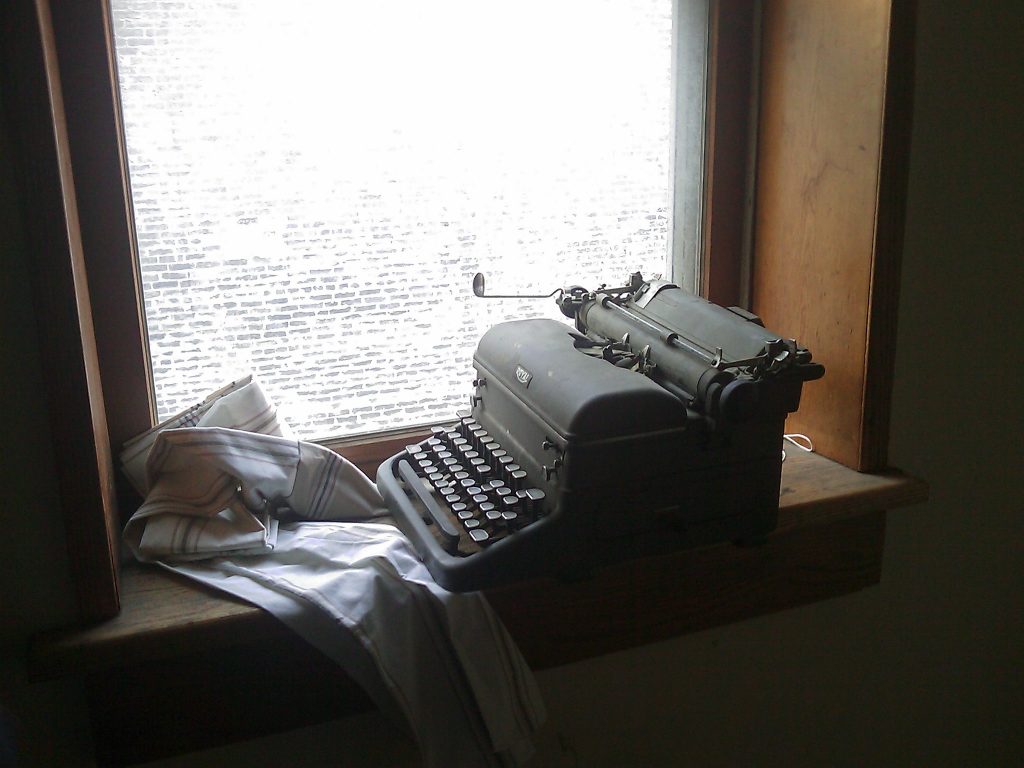
How Amazon Ruined the Publication of a Secret J.D. Salinger Novel by Kristopher Jansma
Add this to the list of things we’re mad at Amazon about! In 1996, a tiny press was set to release the first work by the reclusive author in decades. Here’s what happened next, why it was never published, and why Salinger never put out another book in his lifetime.
Salinger’s ideal publication run would be limited, under-the-radar, and relatively inexpensive. Later, it would come out that Salinger wanted the books to be sold only at retail price, with no mark-up for the store at all—and that he wanted his name removed from the cover entirely. It should just read Hapworth 16, 1924, with no author listed.

8 Anti-Capitalist Sci-Fi and Fantasy Novels by Jae-Yeon Yoo
You may not always be in the mood to read Das Kapital—but thanks to speculative fiction, you don’t have to. These books make a better future seem possible by letting us see what it would look like (or make the flaws of our current system evident by taking them to their logical conclusion).
Speculative fiction immerses the reader in an alternate universe, hooking us in with a stirring narrative and intricate world-building—or the good stories do, anyways. Along the way, it can also challenge us to take a good look at our own reality, and question with an imaginative, open mind: how can we strive to create social structures that are not focused on white, patriarchal, cisgendered, and capitalist systems of inequity?

It’s Time to Take California Back from Joan Didion by Myriam Gurba
This is a manifesto, but it’s not a vendetta: Gurba likes and respects Joan Didion’s work. The problem is Joan Didion’s work doesn’t respect her—or rather, that it doesn’t leave room for the Mexican heritage of California, a state that’s been tacitly and sometimes explicitly ceded as Didion’s domain.
These days, I find what Didion doesn’t show more interesting than what she tells. Literary criticism, along with history, hands me a scalpel, enabling me to slice open the stomachs of those subjects made visible by her prose. I can poke at the exposed contents, smell them, learn from them, and give them a proper burial. Can we make etching their tombstones a collective effort?
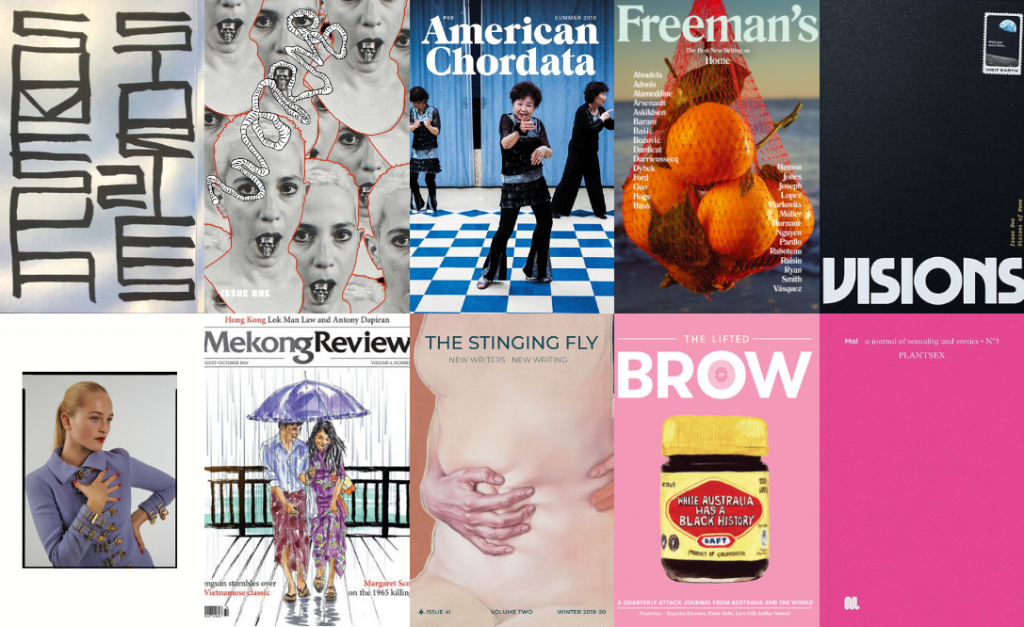
11 Indie Literary Magazines You Should Be Reading by Steven Watson
Electric Literature is obviously your favorite lit mag online. But for print enthusiasts—or, say, holiday gift-givers?—Watson, who runs curated magazine subscription service Stack, recommends independent literary magazines that reward your attention.
Of course the fact that pretty much anyone can now be their own editor-in-chief and creative director means that lots of the work committed to print isn’t all that good, but there are some extraordinary gems out there waiting to be found, and that’s what we spend our days doing.
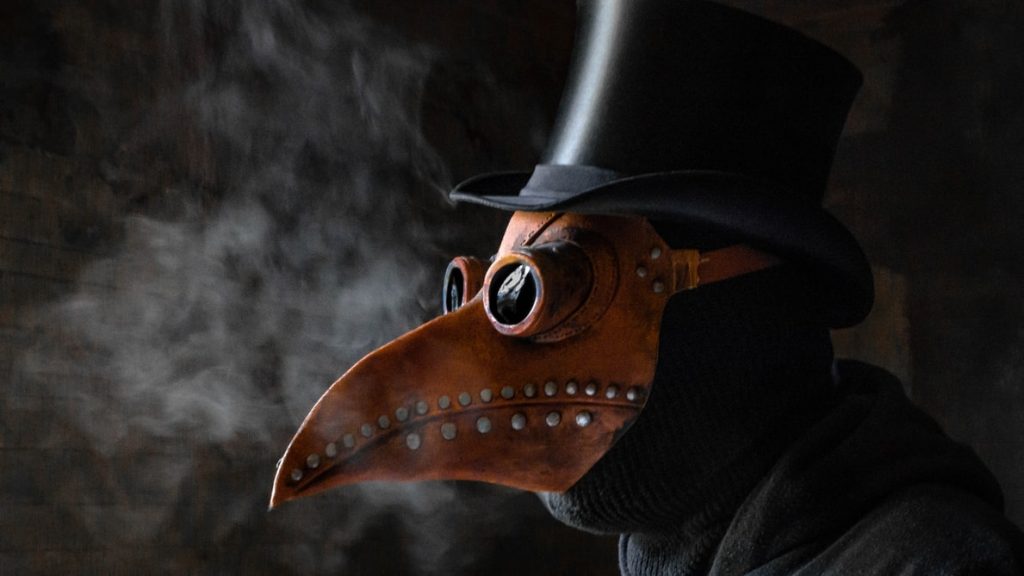
12 Books About Pandemics by Electric Literature
One hundred years ago, in March, we noticed that people were seeking out books about plagues and pandemics in order to envision (or perhaps catastrophize about) the disaster we were facing. This list runs from the very real 1918 flu pandemic to a very fictional zombie invasion.
If the last thing you want to think about right now is global epidemic disease, we get that! But novels can also help people wrap their heads around something that may seem too big and scary to process. If you feel like you’re living in the first pages of a post-apocalyptic story, these books about historical and speculative future pandemics might help you feel less alone.

9 Books That Should Be Adapted as Video Games by Deirdre Coyle
Before The Witcher was a TV show, it was a video game, and before it was a video game, it was a book. And while lots of TV shows are adapted from books, for some reason not that many video games are? These books, though, are just crying out to be games and someone should adapt them immediately.
Even in a game whose primary questline would be something world-changing like “restore magic,” what could be a better side quest than “ride every cat”?
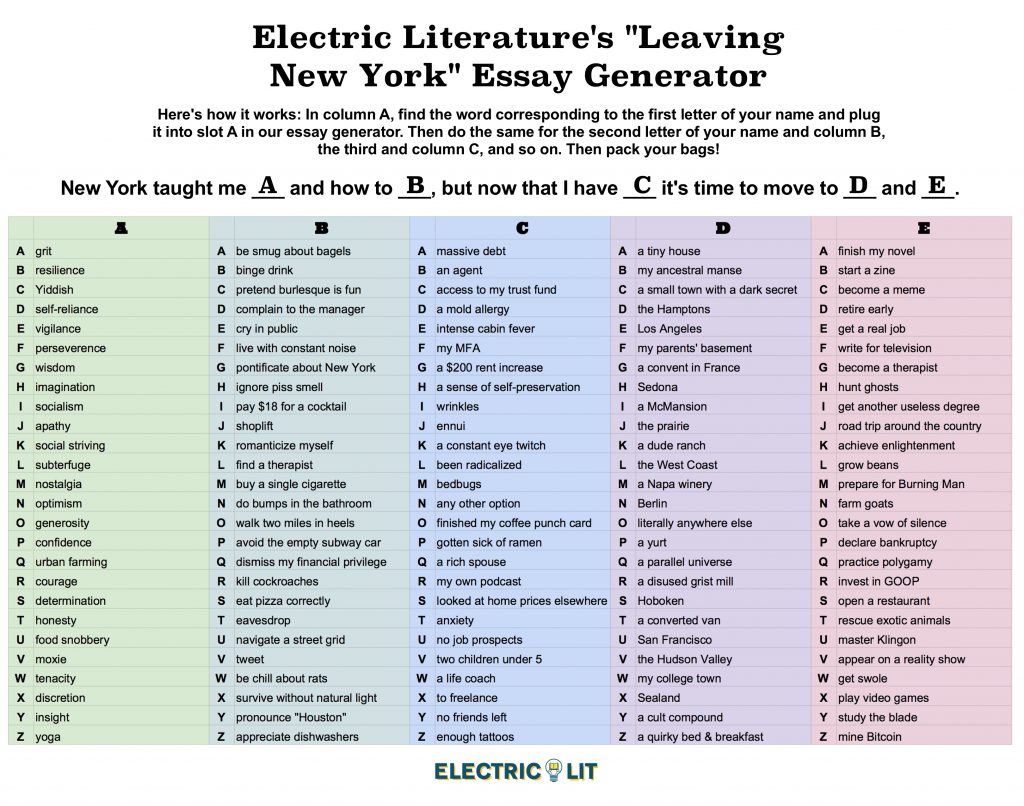
Write Your “Leaving New York” Essay With Our Handy Chart by Electric Literature
All nonfiction writers who have ever lived in New York (and probably most fiction writers and a certain percentage of writers who don’t live in New York at all) have to go through their “leaving New York” essay phase. The pandemic accelerated this for a lot of us, since we were trapped in our tiny apartments. But what should we write about what we learned here in the City that Never Sleeps? That’s where this chart comes in.
Maybe you were heavily influenced by the “worst places in New York” Twitter discourse. Maybe you’ve just spent four months contemplating how you spend half your income to live in a tiny dark room. Whatever it is, you’re now fantasizing about saying Goodbye to All That. We cannot responsibly encourage you to move around the country right now, but we can help you get started on the inevitable personal essay you’ll write when you do!

56 Books By Women and Nonbinary Writers of Color to Read in 2020 by R.O. Kwon
R.O. Kwon’s yearly roundup may be the most-anticipated of all most-anticipated lists. It’s consistently one of our most popular pieces on the site, every year, and we couldn’t be happier that so many people are seeking out women and nonbinary authors of color to add to their TBRs.
This list is now in its fourth year, and has expanded to include nonbinary writers of color; it gets larger each year, and I’m told it’s used to help inform books coverage in other publications, that high school teachers and college professors look to this Electric Literature list when forming syllabi. This fills me with such complicated joy: my hope is that, one day, publishing will be so inclusive that a list like this will become less useful.
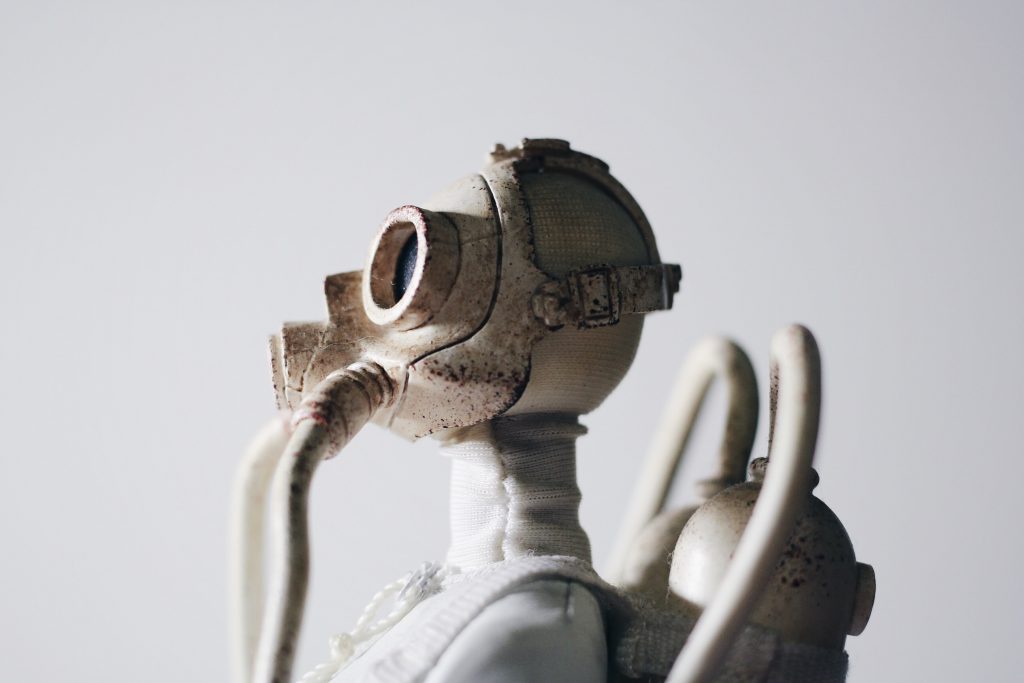
Ted Chiang Explains the Disaster Novel We All Suddenly Live In by Halimah Marcus
What do you do when you’re trapped in a malign pre-apocalypse story you don’t understand? You seek the insight of one of science fiction’s premier thinkers, of course. Ted Chiang took the time to talk about the pandemic, political progressivism, “good vs. evil” stories, and why the slow-motion disaster we’re living through would actually make a terrible science fiction novel.
If your goal is to dramatize the threat posed by an unknown virus, there’s no advantage in depicting the officials responding as incompetent, because that minimizes the threat; it leads the reader to conclude that the virus wouldn’t be dangerous if competent people were on the job. A pandemic story like that would be similar to what’s known as an “idiot plot,” a plot that would be resolved very quickly if your protagonist weren’t an idiot. What we’re living through is only partly a disaster novel; it’s also—and perhaps mostly—a grotesque political satire.




